The place that I worked I used to joke about it. There was a, every morning at 10:30 I’d come into work and I’d go into this cubicle that had a little upright piano and fake white cork bricks on the wall.
AL KOOPERSo I would come in on the upbeat of one. I would wait until the band played the chord, and then as quickly as I could come in play the chord.
More Al Kooper Quotes
-







-





![Al Kooper Quote - The “Highway 61” album [of Bob Dylan] was produced by Bob Johnston if I’m not incorrect. And Bob Johnston was an entirely different producer than Tom Wilson.](https://minimalistquotes.com/wp-content/uploads/2022/07/the-highway-61-album-of-bob-dylan-was-produced-by--683x1024.jpg)

The “Highway 61” album [of Bob Dylan] was produced by Bob Johnston if I’m not incorrect. And Bob Johnston was an entirely different producer than Tom Wilson.
AL KOOPER -





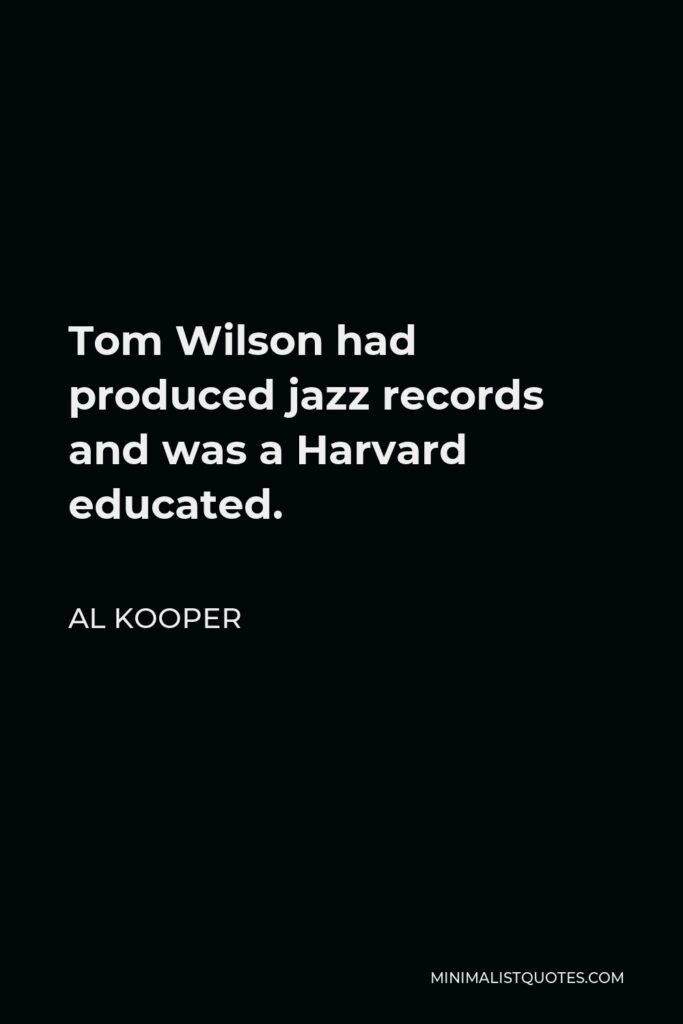

Tom Wilson had produced jazz records and was a Harvard educated.
AL KOOPER -





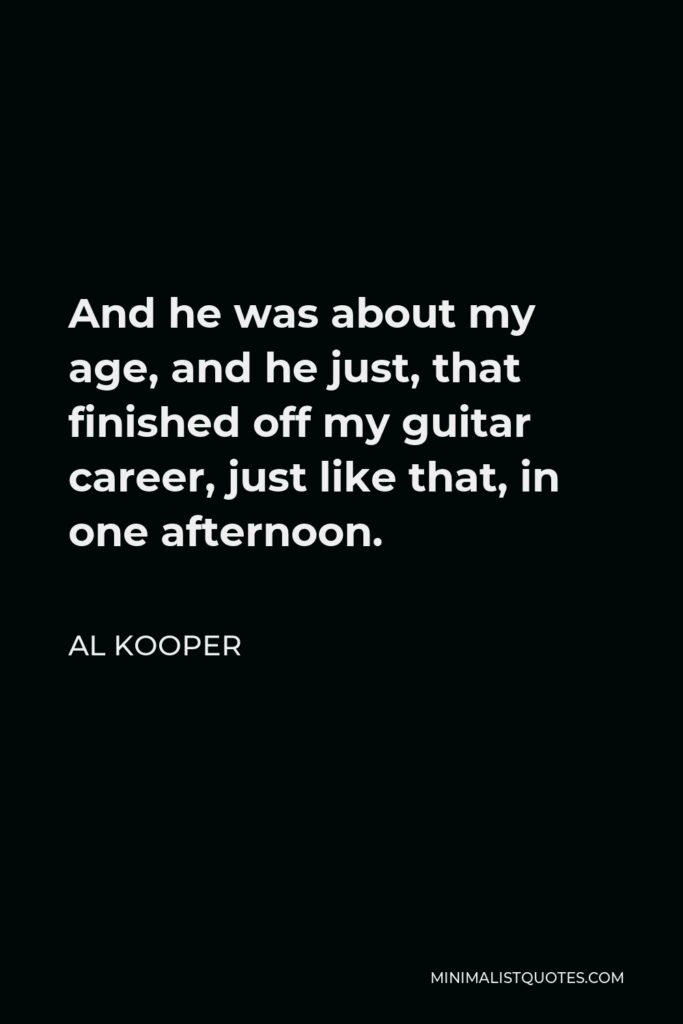

And he was about my age, and he just, that finished off my guitar career, just like that, in one afternoon.
AL KOOPER -





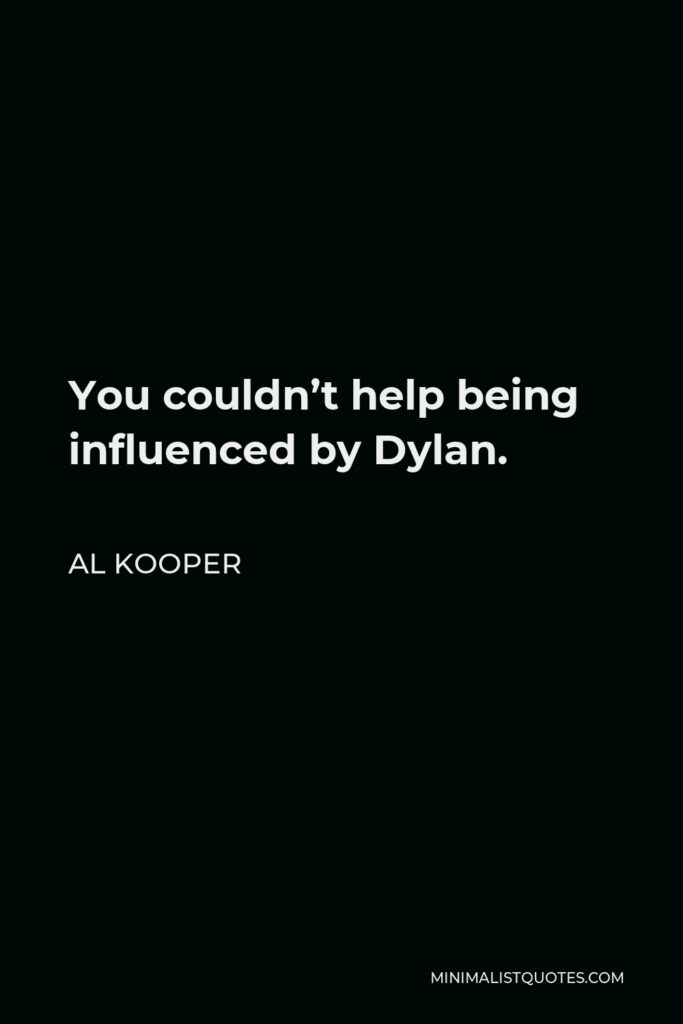

You couldn’t help being influenced by Dylan.
AL KOOPER -





![Al Kooper Quote - Only through sheer ambition did I end up playing on [Bob Dylan sessions] and the fact that I could do that is a testament to how disorganized it really was.](https://minimalistquotes.com/wp-content/uploads/2022/07/only-through-sheer-ambition-did-i-end-up-playing-o-683x1024.jpg)

Only through sheer ambition did I end up playing on [Bob Dylan sessions] and the fact that I could do that is a testament to how disorganized it really was.
AL KOOPER -







Producing Bob Dylan was pretty much a spectator sport.
AL KOOPER -







So I would come in on the upbeat of one. I would wait until the band played the chord, and then as quickly as I could come in play the chord.
AL KOOPER -







Bob Dylan said to the producer, turn up the organ. And Tom Wilson said, oh man, that guy’s not an organ player. And Dylan said.
AL KOOPER -





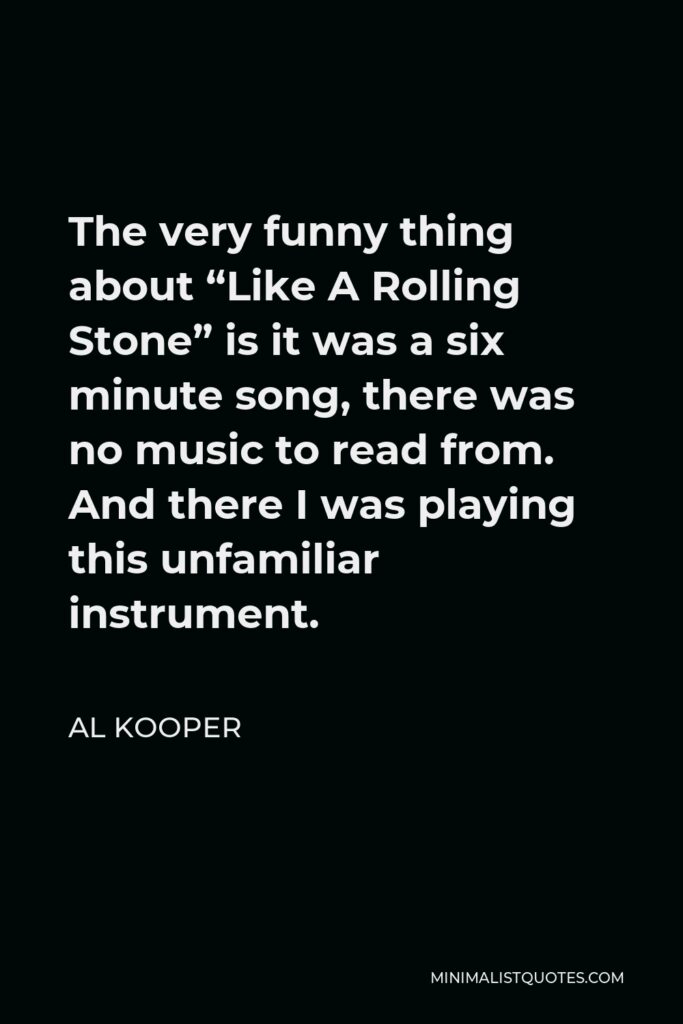

The very funny thing about “Like A Rolling Stone” is it was a six minute song, there was no music to read from. And there I was playing this unfamiliar instrument.
AL KOOPER -





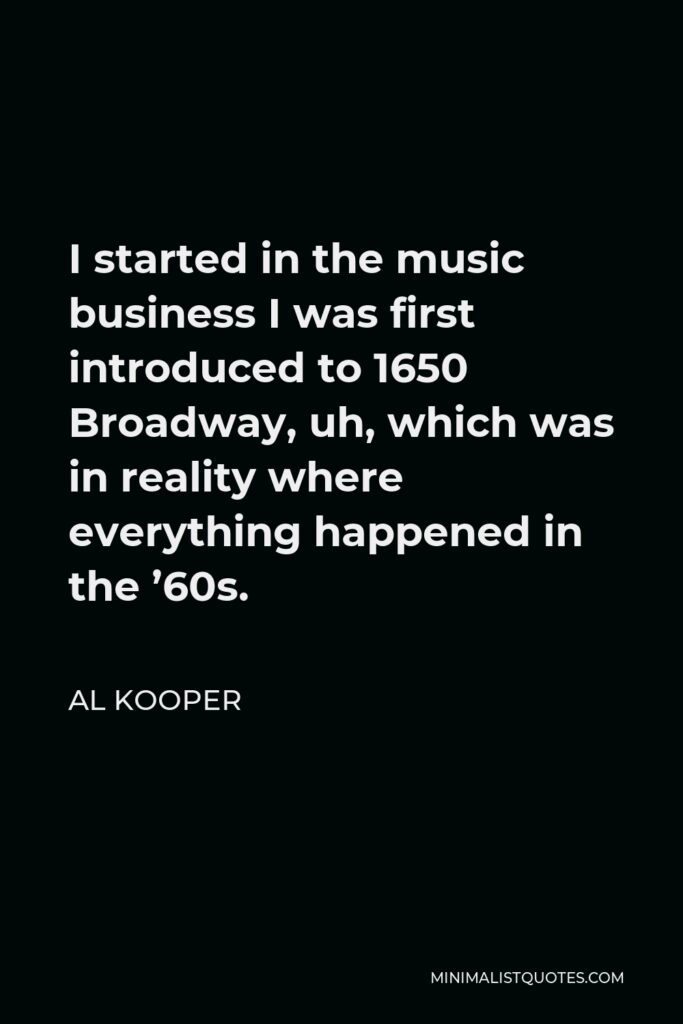

I started in the music business I was first introduced to 1650 Broadway, uh, which was in reality where everything happened in the ’60s.
AL KOOPER -





![Al Kooper Quote - The first generation from the ’50s that were in 1650 [Broadway] were pretty much all crooks,](https://minimalistquotes.com/wp-content/uploads/2022/07/the-first-generation-from-the-50s-that-were-in-165-683x1024.jpg)

The first generation from the ’50s that were in 1650 [Broadway] were pretty much all crooks,
AL KOOPER -





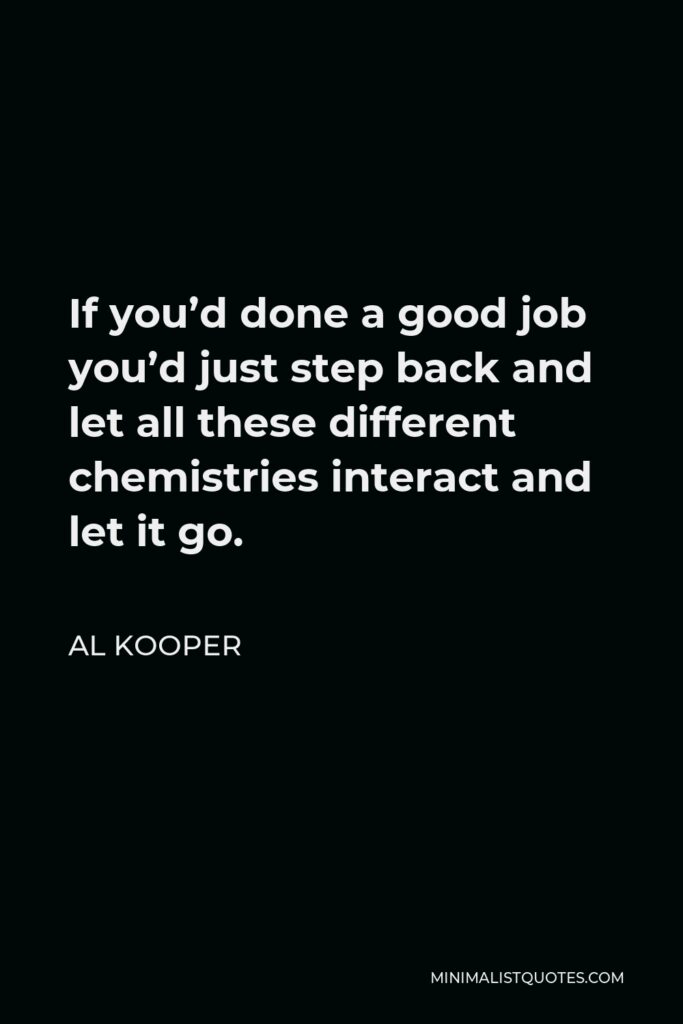

If you’d done a good job you’d just step back and let all these different chemistries interact and let it go.
AL KOOPER -





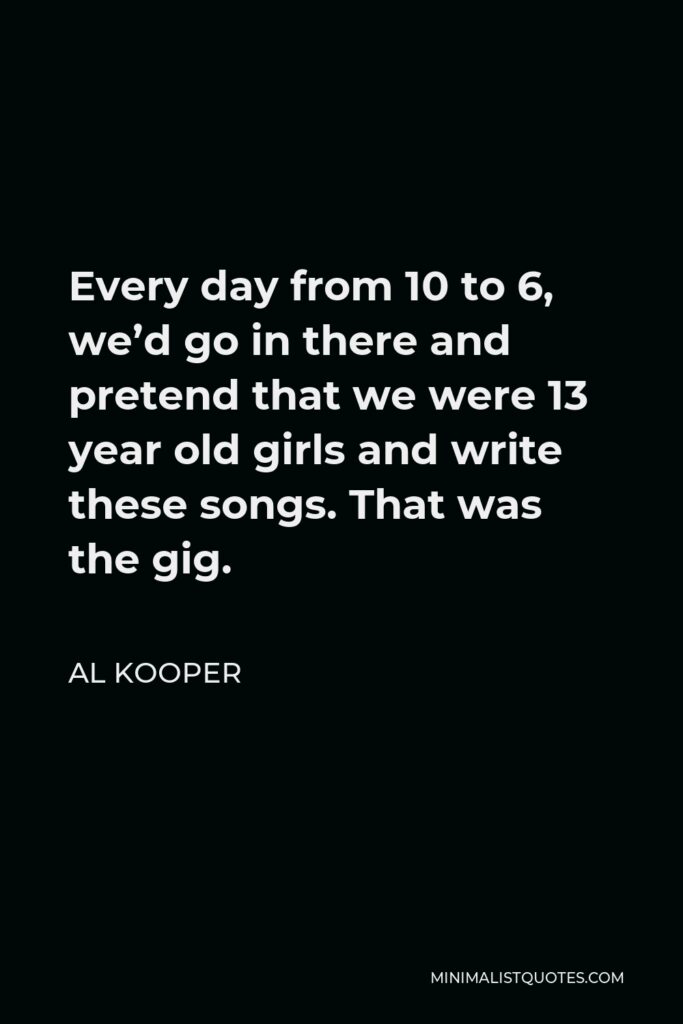

Every day from 10 to 6, we’d go in there and pretend that we were 13 year old girls and write these songs. That was the gig.
AL KOOPER -





![Al Kooper Quote - I think it was Columbia politics, Columbia Records politics that, that, Tom Wilson left [Bob Dylan] after “Like A Rolling Stone”.](https://minimalistquotes.com/wp-content/uploads/2022/07/i-think-it-was-columbia-politics-columbia-records--683x1024.jpg)

I think it was Columbia politics, Columbia Records politics that, that, Tom Wilson left [Bob Dylan] after “Like A Rolling Stone”.
AL KOOPER -







Unlike so many Dylan-writer-wannabes and phony ‘encyclopedia’ compilers, Sean Wilentz makes me feel he was in the room when he chronicles events that I participated in.
AL KOOPER







